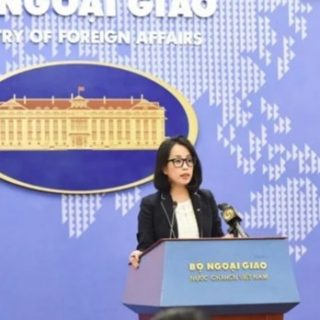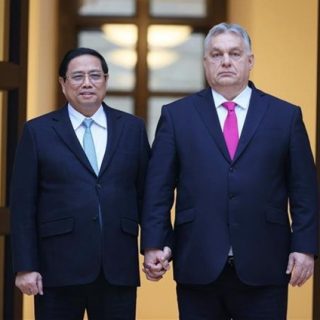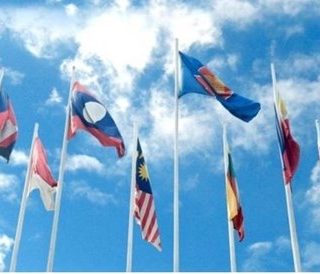
Vietnam actively participated in the negotiation process and building of the 1982 United Nations Convention on the Law of the Sea (UNCLOS) and has made significant efforts in enforcing the pact.
The country has a coastline of more than 3,260km and thousands of islands, including the Hoang Sa (Paracel) and Truong Sa (Spratly) archipelagos.
Aware of the importance of the sea, Vietnam has always upheld the principles and goals of the UNCLOS while taking actions to contribute to the implementation of the convention.
Before the UNCLOS came into force, Vietnam had utilised relevant provisions of international law to build domestic legal documents on seas.
In 1977, Vietnam issued the Declaration of the Government on Vietnam’s territorial waters, which declared its 200-nautical mile exclusive economic zone.
The declaration was issued when the UNCLOS was being negotiated and it was supported by the majority of countries at the third UN Conference on the Law of the Sea, reflecting Vietnam’s contributions to the codification of international law.
With this declaration, Vietnam together with Kenya, Myanmar, Cuba, Yemen, Dominica, Guatemala, India, Pakistan, Mexico and the Seychelles were considered among the pioneering countries in making “exclusive economic zone” customary international law and later became a key content of the UNCLOS.
Vietnam was among 107 countries signing the UNCLOS in Montego Bay, Jamaica, right after the pact was open for signature and was among the first countries ratifying it before it took effect.
In 1994, the National Assembly of Vietnam issued a resolution approving the UNCLOS. The resolution affirmed Vietnam’s sovereignty over its internal waters, territorial waters as well as its sovereign rights and jurisdiction over the contiguous sea, exclusive economic zone, and continental shelf on the basis of the UNCLOS provisions and the rules of international law, demanding other countries respect Vietnam’s rights.
The resolution also affirms Vietnam’s sovereignty over the Hoang Sa and Truong Sa archipelagos and its policies to settle disputes and other differences related to the East Sea through peaceful talks in a spirit of equality, mutual understanding and mutual respect, and respect for international law.
This year marks the 25th anniversary of the official entry into force of the UNCLOS and the 25th anniversary of Vietnam’s ratification of the UNCLOS.
As a member of the UNCLOS, Vietnam is entitled to a 12-nautical mile territorial sea, 200-nautical mile exclusive economic zone and continental shelf of at least 200 nautical miles.
To demonstrate the obligations and goodwill of a signatory of the UNCLOS, Vietnam has always respected and implemented its obligations defined by the UNCLOS, improved its national legal system, and applied the UNCLOS provisions in identifying its waters, delimitation of maritime boundaries with neighbouring countries and marine usage.
Vietnam has also worked with other countries in line with the UNCLOS regulations for the sustainable preservation and use of marine resources.
In 2012, Vietnam approved the Law of the Sea of Vietnam, an important step to translating the provisions of the UNCLOS into domestic legislation, creating favourable conditions for synchronous management of territorial waters and marine economic development.
The National Assembly also approved the Vietnam Maritime Code in 2015, which came into effect on July 1, 2017.
The legislature passed a series of other sea-related legal documents such as the Law on national border in 2003, Law on environmental protection in 2014 and Law on natural resources and sea and island environment in 2015.
Vietnam has made great efforts to apply the UNCLOS in delimitation of marine boundary with neighbouring countries.
Specifically, Vietnam and Thailand signed an agreement on settling the maritime boundary between the two countries in the Gulf of Thailand on August 9, 1997, Vietnam and China signed an agreement on the delimitation of the Tonkin Gulf and another on fisheries cooperation on December 25, 2000, and Vietnam and Indonesia signed an agreement on the delimitation of continental shelf on June 26, 2003.
Further, Vietnam has protected international law, including the UNCLOS. While discussing disputes in the East Sea, Vietnam has consistently demanded respect for international law and the UNCLOS, considering it a principle to settle and resolve sea-related disputes.
Vietnam has made endeavours in incorporating this principle in ASEAN documents, including the Declaration on the Conduct of Parties in the East Sea (DOC), ASEAN Six-point Principles on the East Sea and the draft Code of Conduct in the East Sea (COC).
Such contents as international law and UNCLOS for long-term resolution of disputes in the East Sea were included in the agreement on basic principles guiding the settlement of sea-related issues signed between Vietnam and China on November 10, 2011.
Based on the provisions of the UNCLOS, Vietnam has effectively deployed marine economic development activities in its exclusive economic zone and continental shelf within 200 nautical miles in favour of national development.
Vietnam has been fostering cooperation with relevant parties in marine environmental protection, search and rescue on sea, natural disaster prevention and implementation of measures to combat crime, contributing to the implementation of the UNCLOS.
In addition, Vietnam has participated in developing international and inter-regional sea-related mechanisms and legal documents such as the Convention on the International Maritime Satellite Organization (INMARSAT) and the Global Maritime Distress and Safety System (GMDSS).
The country has also joined the Conventions of the International Maritime Organization.-VNA

Aufrufe: 402

 Deutsch
Deutsch Tiếng Việt
Tiếng Việt





